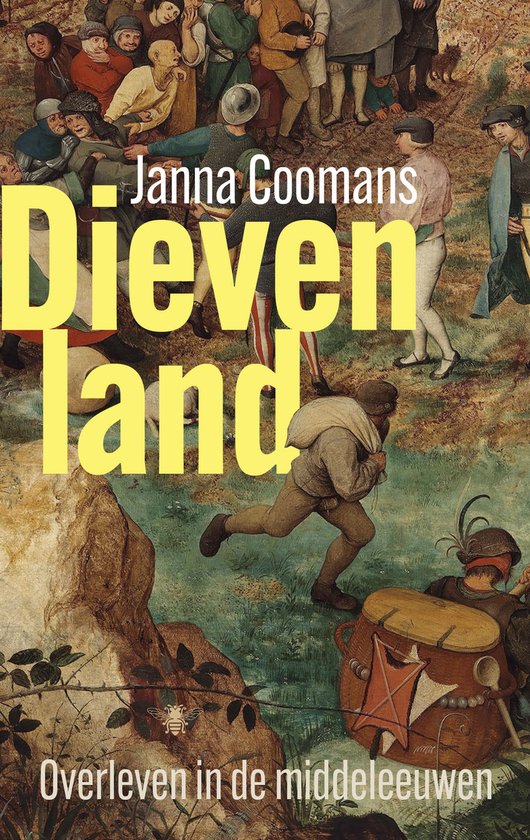Land of Thieves: Survival in the Middle Ages
Brilliantly-researched, groundbreaking reconstruction of daily life in the fifteenth century
Drawing on newly-unearthed criminal registers, court records, and city archives, Coomans paints a vivid picture of the lives of commoners in the late Middle Ages. Her research is uniquely centred around thieves: 158 of them, arrested and tried between 1470 and 1510 in the Low Countries (present-day Netherlands, Belgium and Luxembourg). Most of these criminals were men, only six were women, all of them confessed in surprising detail to their crimes.
The most commonly stolen items were humdrum: food or cooking pots, building materials, work equipment, clothing and coins. Hunger was a common motive. Houses were meagrely and functionally furnished without knickknacks, so a wool coat or a tin chamber pot was a prized possession. The heavy punishments for theft which included beheading, hanging and being burned to death, show just how important household objects were at the time.
Vignettes include a husband and wife stealing herrings from a barrel, a goldsmith seducing a miller’s wife with a stolen book, a medieval Bonnie & Clyde gatecrashing a wedding, and a servant eating his stepfather’s sheep. The stories are colourful and entertaining. How would one even go about stealing a herd of pigs? Or some bees? The accounts give insights into different lifestyles, like that of a marauding serial murderer, a member of a robber’s gang marking doors with a secret code, or a man sleeping in barns who grew attached to a small black cow.
Coomans compares the old world she describes to life today and draws from it lessons on how we can better function as a society and rethink our relationship to material possessions.
2025 Libris History Prize shortlist, 2025 Boekenbon Literary Prize longlist
Outstanding research is made tangible to the reader using details from well-known engravings and paintings from the period
Comparable to Emmanuel Le Roy’s Montaillou and Francis Pryor’s Britain in the Middle Ages

Janna Coomans (b. 1988) is a historian and associate professor at Utrecht University. In 2021, her PhD thesis was published as Community, Urban Health and Environment in the Late Medieval Low Countries by Cambridge University Press. Her research in provincial archives has led her to consider how the Middle Ages can offer a source of inspiration for our society today.